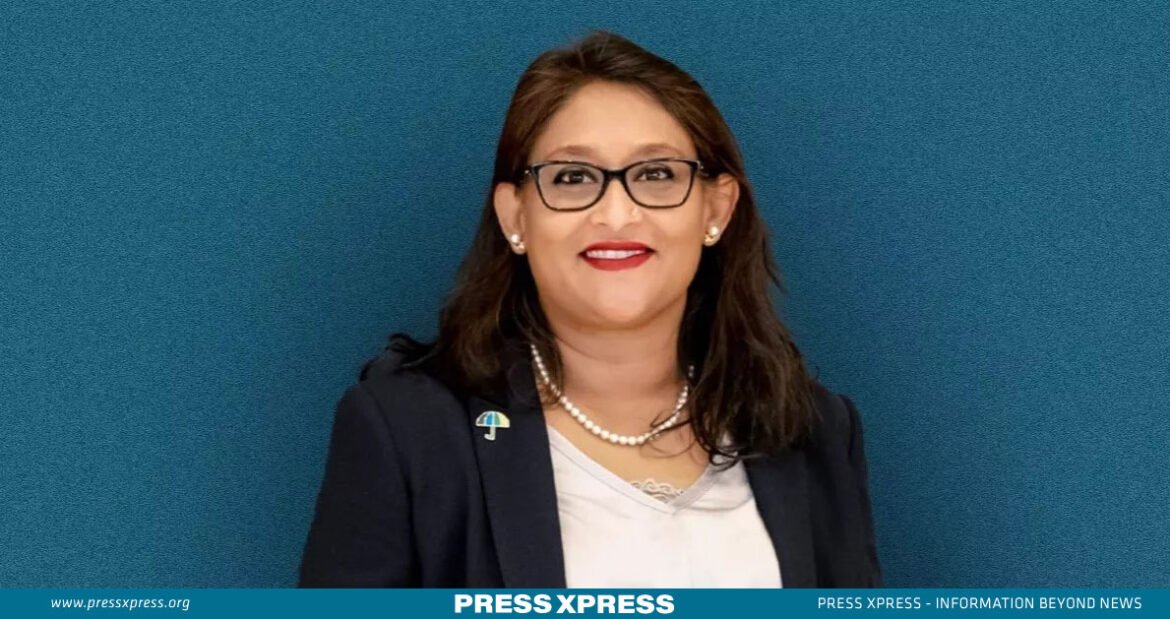This year, the World Health Organization (WHO) has appointed new Regional Directors (RDs) for three of its six regions. The Southeast Asia Region (SEARO) comprises only 11 member states, yet it is home to over a quarter of the world’s population. Among the SEARO member states, Nepal and Bangladesh have put forth their candidates to vie for the position of Regional Director.
Saima Wazed, the granddaughter of Bangabandhu and daughter of Prime Minister Sheikh Hasina, has been nominated as Bangladesh’s candidate. She holds several key positions, serving as the Chairperson of the Bangladesh National Advisory Committee on Autism and NDD, Chairperson of the Shuchona Foundation, and as a Thematic Ambassador for the Climate Vulnerable Forum.
You Can Also Read: PM SHEIKH HASINA REAFFIRMS COMMITMENT TO DEMOCRACY IN BANGLADESH
The selection of a ‘Regional Director’ for the Southeast Asia region has recently attracted significant attention and media coverage. Furthermore, numerous well-established regional and international publications have raised concerns about Saima Wazed’s candidacy and her qualifications for the role. The arguments presented in these articles are often characterized by bias and stereotypes.
Regarding this, Saima Wazed commented:
The initial controversy that arises revolves around my mother holding the position of Prime Minister in Bangladesh, leading to accusations of nepotism in my nomination. While I acknowledge that heightened scrutiny is expected due to my mother’s role, it is disheartening that my extensive years of dedicated work, education, and accomplishments have been disregarded.
Despite the availability of public information, the articles fail to acknowledge my contributions to Chatham House’s Global Health Program or my involvement with their Commission for Universal Health. They also omit the essential detail that I served as an advisor to the WHO Director-General on Mental Health and Autism, or that I held a position as a member of the WHO Expert Advisory Panel on Mental Health for nearly a decade.
Furthermore, there is no mention of my significant roles as the Chief Adviser on the National Mental Health Plan of Bangladesh or as a technical expert on the National Mental Health Act of Bangladesh 2018. My teaching activities were disregarded, and readers were not informed that I was honored with the WHO 2014 Excellence in Public Health Award.
The articles fail to acknowledge that I am currently in the process of completing my Doctorate in Education (EdD) with a focus on Organizational Leadership. This practitioner-doctorate degree is specifically designed for solving intricate problems to enhance the performance of both organizations and individuals. Regrettably, women, much like myself, continue to be held to distinct standards compared to men within our professional journeys. Deliberately negating my experiences and reducing me to merely being a ‘mama’s girl’ perpetuates gender inequality.
These articles raise doubts about the appropriateness of my chosen field of study and work, which is ‘psychology,’ for the role of Regional Director at the World Health Organization. When I embarked on my career, I recognized the substantial need for progress in the realm of mental health. My efforts began with the goal of dispelling the misconceptions that prevail concerning mental health. Unfortunately, many are reluctant to engage in open discussions about mental health within the context of South Asian culture. After years of unwavering dedication, we have managed to alter this perception to some extent. Nevertheless, I acknowledge that there is still much work to be accomplished. The issue tends to be overshadowed when critics prioritize other areas of medical science over the expertise of mental health professionals.
The World Health Organization (WHO) itself recognizes the significance of mental health as a valuable resource and remains committed to partnering to safeguard it. This commitment stems from the fact that one in eight people worldwide grapples with mental health issues. Given this stark reality, it is immensely irresponsible to downplay the contributions of psychologists and other related experts. Speaking on behalf of my broader profession, I want to assert, unequivocally, that mental health professionals are in no way inferior or ill-suited for leadership positions in the realm of public health. Instead, I argue that one such expert should sit at the leadership table alongside the current technocrats and bureaucrats within the WHO.

Lastly, certain reports regarding the SEARO-RD elections have levied unfounded allegations that Bangladesh is orchestrating coercive political campaigns to secure its candidate’s victory. Frankly, the lack of trust exhibited by these commentators in the member countries of SEARO is disheartening. Each member state retains the autonomy and freedom to assess candidates and voice their preferences. No amount of apprehension can alter this fundamental principle.
A responsible journalist or commentator should set aside political biases and focus on individual merits when evaluating the candidates from Bangladesh and Nepal in this election. This approach would facilitate a more objective assessment of which of the two countries has a more favorable track record in public health outcomes. I take immense pride in my country’s accomplishments in the field of public health and am honored to be nominated as a candidate from Bangladesh for the position of Regional Director of WHO SEARO.
The response to this campaign underscores two unfortunate realities. The first is an illustration of the persistently biased perspective of well-established global networks and organizations that challenge the existing order. The second is the deeply entrenched discrimination faced by women when vying for positions of power within large organizations. In this campaign, we witness an unfortunate blend of both these issues. However, I remain resolute.
I will persist in advocating for the most vulnerable among us, I will continue to share our vision for the future with my regional counterparts, and I will unwaveringly champion what I believe to be right. My message to those who express trepidation is straightforward: do not fear a woman or her wealth of experience, do not shy away from trusting the expertise of mental health professionals, and learn to have confidence in the decisions made by member states.


